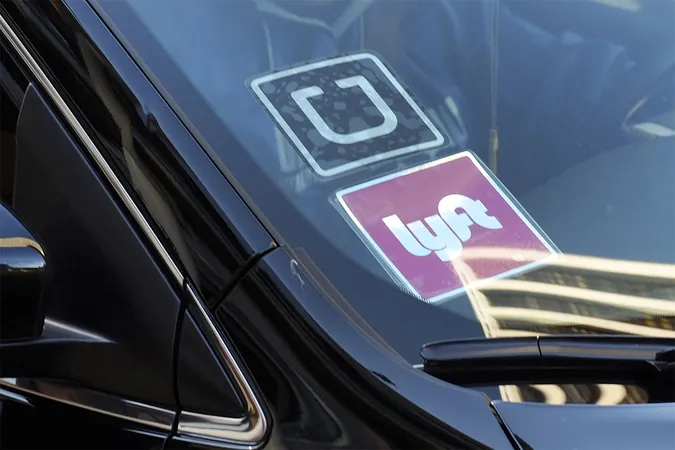
Shocking Data Breach: Uber and Lyft Expose Gig Workers’ Social Security Numbers to Meta and TikTok!
2024-11-15
Author: Ken Lee
Introduction
In a startling revelation that has sent shockwaves through the gig economy, recent research from Northeastern University has uncovered that ride-hailing giants Uber and Lyft were unknowingly transmitting sensitive personal information, including Social Security numbers, to major social media platforms Meta (formerly Facebook) and TikTok.
Data Transmission Flaw
When aspiring drivers fill out their applications for either service, they provide critical information such as names, dates of birth, and driver’s licenses. However, the research indicates that gig workers' personal data, thought to be secure during the application process, was actually at risk due to a flaw involving tracking pixels—tiny pieces of code embedded in websites to collect user behavior data.
Investigation Findings
Leading the investigation, David Choffnes, a professor of computer science and cybersecurity at Northeastern, explains that these tracking pixels have become ubiquitous across the internet. As he points out, 'Almost every website you visit these days has trackers on it. If you see ads relevant to your recent browsing, it’s because companies like Meta have these trackers in place.' The same goes for TikTok and other tech giants, which utilize this method to enhance their advertising efforts.
The Price of Free Tools
Uber and Lyft’s reliance on these trackers was partly driven by the allure of free tools offered by Meta and TikTok, which help analyze web traffic. However, the researchers discovered that this came at a price—hackers could exploit these tracking pixels, resulting in unintended dissemination of personal data from sensitive online application forms directly to the social media behemoths.
Safety Oversights
'The issue here is that when companies deploy tracking tools to optimize ads and monetize their platforms, they often neglect to secure private data, leading to potential leaks,' Choffnes said. This risky oversight raises urgent questions about the security and privacy of gig workers, particularly those who may feel they have little control over their personal information shared online.
Simulating the Vulnerability
The researchers took it upon themselves to expose these vulnerabilities by simulating the application process a prospective driver would experience. Notably, the exploit was only uncovered when they used the desktop versions of Uber and Lyft’s websites, prompting concerns over the safety of personal data for all users, especially vulnerable gig workers who rely on these platforms for income.
Awareness and Response
Choffnes and his team aimed to shine a spotlight on the privacy challenges facing gig workers, emphasizing the need for secure online practices. 'Many gig workers don’t have a choice about how much of their data is exposed. We aimed to quantify their data exposure and identify the parties accessing this information,' he stated.
Conclusion
Following this alarming disclosure, Uber and Lyft acted swiftly upon learning about the security flaws, undertaking measures to close the loopholes. However, this incident serves as a crucial reminder for all consumers to be vigilant about their privacy online, particularly in an age where digital transactions are becoming increasingly common—and so are the risks associated with them.
The Ongoing Challenge
As gig companies adapt and evolve, the onus now lies on them to ensure that the personal data of their workers is safeguarded against unwarranted access. The question remains: How many others are at risk? Stay tuned as this story develops!



 Brasil (PT)
Brasil (PT)
 Canada (EN)
Canada (EN)
 Chile (ES)
Chile (ES)
 España (ES)
España (ES)
 France (FR)
France (FR)
 Hong Kong (EN)
Hong Kong (EN)
 Italia (IT)
Italia (IT)
 日本 (JA)
日本 (JA)
 Magyarország (HU)
Magyarország (HU)
 Norge (NO)
Norge (NO)
 Polska (PL)
Polska (PL)
 Schweiz (DE)
Schweiz (DE)
 Singapore (EN)
Singapore (EN)
 Sverige (SV)
Sverige (SV)
 Suomi (FI)
Suomi (FI)
 Türkiye (TR)
Türkiye (TR)